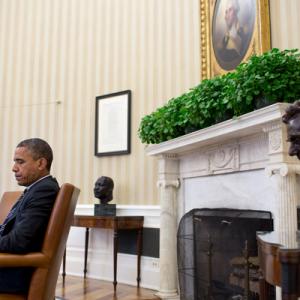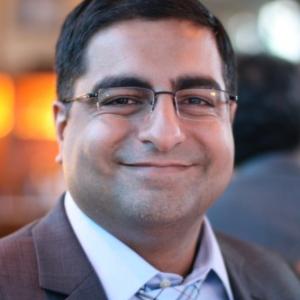
Hussein Rashid is the founder of islamicate, L3C, a consultancy that focuses on religious literacy. He is a lifelong New Yorker committed to interfaith relations and working for the common good.
Posts By This Author
What Muslims Need from Christians
Since 9/11, Muslims have been held to an impossible standard in the U.S. And now it's getting worse.
RELIGION IS AN EASY language for people to use to define conflict. The people most willing to speak about what religion demands are the ones least likely to be invested in the sacrifices religion requires. They want the power that they believe they can claim through religion.
Those same voices who engage in this idle worship now hold the reins of power in the U.S. government. And they seek to exterminate Muslims. There are concerns of a Muslim registry and internment camps. More extreme fears consider other types of camps, imagining a return of the Holocaust. These fears are not unfounded, nor are they out of character with what President Trump’s advisers and appointees have said.
Yet these parallels are so powerful that I think it may be difficult for them to be realized. What I think is more likely in the near term is a different historical parallel. At the waning of another empire, the Colosseum became a space where individuals were martyred for what they believed, for entertainment.
An individual loss may be horrible, but the individual’s community may still believe it is safe. But death can come by a thousand cuts. The lion that chooses one life at a time remains a ravenous beast—the whole community will be vilified and will eventually die, just not quickly. And that beast will need a new food source.
The mayor of New York announced a 35-percent increase in hate crimes in the city in the month following the election. During that time there were 43 hate crimes documented. In December, a Muslim Metropolitan Transportation Authority worker wearing her uniform and a hijab was pushed down a flight of stairs at Grand Central station, and a Muslim police officer was threatened, in front of her teenage son, with having her throat slit. In August, two Muslim leaders were shot to death after leaving prayers at their mosque. For years, the New York police department has spied on Muslims where we pray.
Trump Supporters Think My Life Is Worth Less Than Theirs
The high school I went to, on Long Island, taught me a lot about race. I learned about overt racism, and what we now call microaggressions.
Over a quarter of a century later, I am under no delusions that we live in a post-racial society.
Why the 'Post-Racial' Label Only Perpetuates Racism
The shooting of Michael Brown and the failure of a grand jury to indict the shooter, Darren Wilson, are symptoms of a wider malaise.
It is part of a deep-seated illness that infects our body politic: racism.
The sad reality is that so many people believe we live in a post-racial society because we have a black president. We cannot address the issue, challenge ourselves and transform our societies without a prophetic voice. Ferguson is the space where I see that voice re-emerging into America’s consciousness.
Racism is not just about individual acts. It is about a system that allows unarmed black boys to be shot at a rate 20 times that of white boys; it allows a prosecutor to deliver a speech as a defense attorney for the accused after he fails to get an indictment. It is a system that has a black president telling people to calm down as the police, in military gear, attack them.
Why Peter Kassig Was the Islamic State’s Greatest Threat
With each bloody act, Islamic State militants demonstrate their need for self-importance overrides any moral, ethical, or religious boundary. Peter Kassig’s beheading is a microcosm of all the Islamic State wants, and religion is not high on that list.
Kassig converted to Islam and took the name Abdul-Rahman, servant of the Merciful. By many accounts, his conversion was genuine and the result of the love he felt for the people he met while providing aid in Syria. His former military service could have made him reluctant to return to a region in conflict. Instead, he chose to go back and help people, risking his life to do so.
In comparison, the Islamic State exacerbates a worsening humanitarian crisis in Syria. It works to prevent aid workers like Kassig from doing their job. A broken population that has no hope is the best recruiting environment it can hope for. If Syrians get aid from Americans, it would destroy the narrative that Islamic State militants are caring for Muslims.
The Islamic State specializes in media manipulation. It uses videos of its executions to gain a response from more powerful adversaries, thus giving it more legitimacy. The world “Islamic” ties the group to something grander than political machinations and 15th-century wars. Its video game-style recruitment material exhibits a mastery of the language of modernity.
Ultimately, the group is a product of modernity, not religion.



